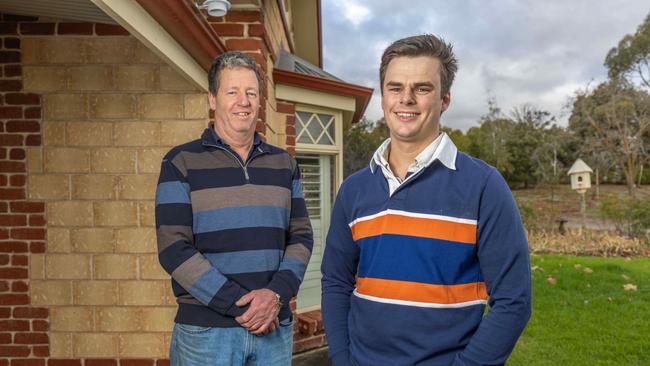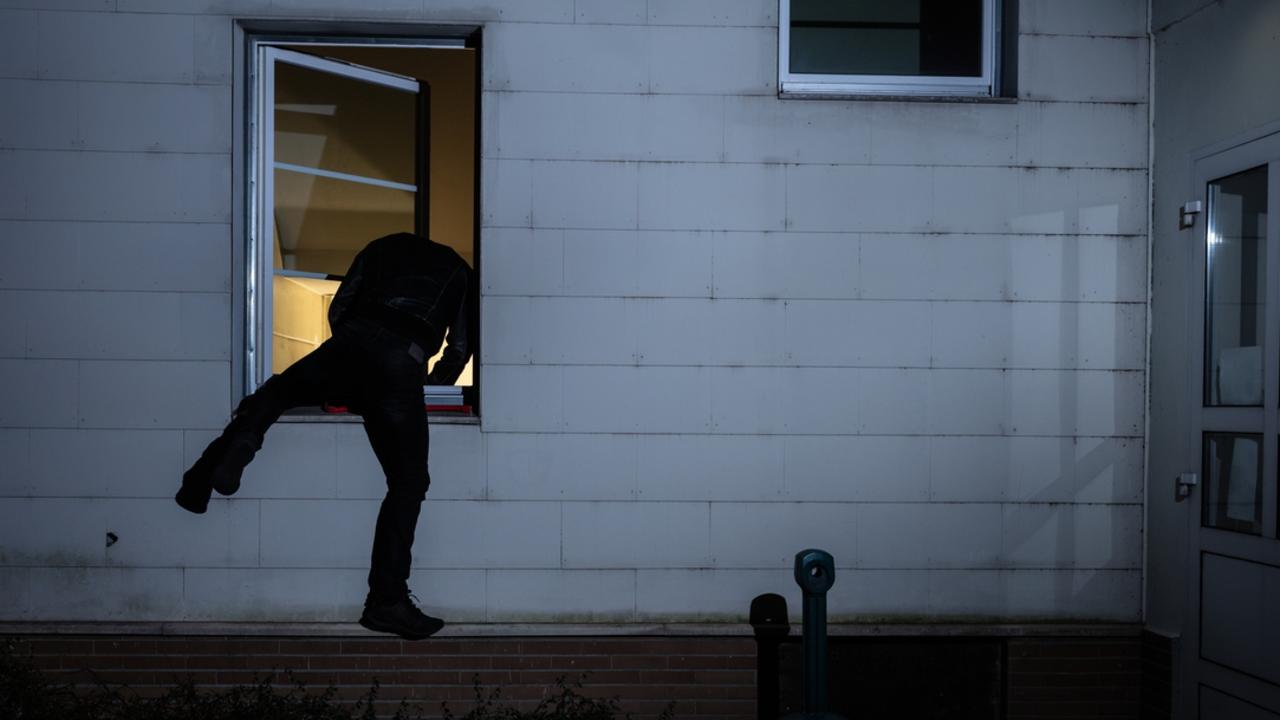‘It’s the principle’: Why parents should charge working kids rent
There’s one financial decision experts say could change the way your child enters the real world — but are all parents on board? Take our poll.

SA News
Don't miss out on the headlines from SA News. Followed categories will be added to My News.
Fresh out of Adelaide University and working in his first full-time job, Jordan Ball says paying rent to his parents is a matter of “principle”.
The agricultural science graduate started giving $75 a week to his dad, Greg, an Air Force flight engineer, and his stenographer mum, Tracy, when he started working full-time with Salter Springs-based Crop Consulting Services at the beginning of this year.
He lives in Kalbeeba, near Gawler on Adelaide’s northern outskirts, with his parents and younger sister, Lauren, 19, who is studying occupational therapy at Adelaide University.
“It’s cheaper than renting or paying a mortgage, obviously, and there’s all the perks of being at home,” says the 21-year-old, who works as an agronomist helping farmers on the Yorke Peninsula and in the Upper and Mid North.

“It’s important to do purely based on the principle that I’m living there, eating the food and using the water and electricity and all that. I know $75 obviously doesn’t cover all my expenses but it helps and it’s more the principle, than anything.”
Mr Ball’s first job was as a 14-year-old casual for McDonald’s and he also did shifts for Crop Consulting while he was at university.
“I didn’t start paying rent until I was full-time but I think it’s important to do it at some stage,” he says.
“Having that weekly commitment makes you realise that not everything’s free and stuff costs money. You might be a bit more aware about what food you eat and how long you have a shower for – a bit of awareness that living in a nice house and with nice food, it all costs money.”

Adelaide money coach Karen Eley says Mr Ball is doing the “right thing” by paying his mum and dad rent now that he is earning a weekly pay packet and living at home.
She is calling on all parents to follow suit – and says the arrangement should start as soon as children start working part or full-time. She says the practice, even if it’s just a token weekly amount, is key to building financial resilience and independence.
“I’m for charging rent, I think it’s a good idea. It should start as soon as a child starts earning their own independent income, regardless of age,” she says.
“It’s essentially preparing them for the real world, it’s kind of like a simulation of paying your own rent or a mortgage.
“In addition to that, it gives them a sense of contribution around the house and that can be a really healthy thing. If they (working children) have got the financial means to contribute, then it’s the right thing to do.”
Ms Eley says parents who could afford it might choose to collect the money to hand back to their child as a house deposit or contribution to a financial goal.

And for those struggling to make ends meet during the cost-of-living crisis, the extra weekly cash could “take a bit of financial strain off”.
“If the children are at home, they’re using more electricity and eating food, it’s an additional cost to the parents than if they weren’t at home,” says Ms Eley, who runs Women Talking Finance in Mile End.
“But it’s teaching the child that they’ve got a weekly or fortnightly financial commitment, that they need to pay to contribute to their living costs.”
She says even if a child is collecting government support, a token payment – five or 10 per cent of their total amount – is appropriate to prepare them for the inevitabilities of life.
“Have a look at the income and take a percentage. For us as adults, anything more than 30 per cent of our income going towards housing does tend to cause financial strain and stops us from doing the discretionary spending and putting away for our future and our goals,” says Ms Eley, who paid rent to her own mum when she was a teenager working part-time.
“I think an amount somewhere between 15 to 20 per cent of a child’s net income is a good place to start.”
She says, much like a rental agreement, deciding on parameters of when rent is paid and for how long is key.
The arrangement could evoke emotions – resentment for the child and feelings of guilt for parents – and navigating those was “equally as important as working out how much and when”, Ms Eley says.
“It’s becoming a financial grown-up but doing it in a safe environment,” she says.






